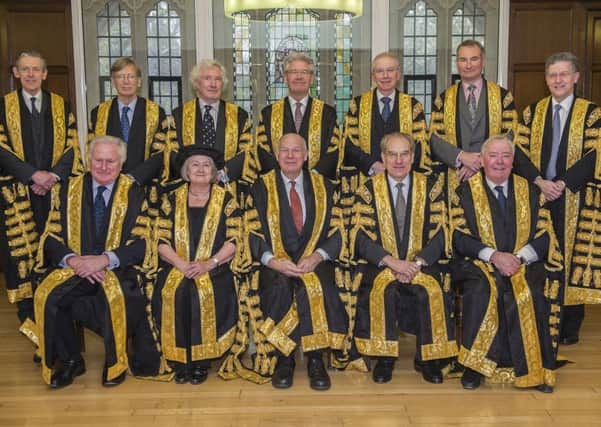Why MPs must be given a say on Brexit


The Supreme Court issued its judgment last week on whether the UK Government needed to consult the Westminster Parliament before triggering Article 50 to start the formal process to take the UK out of the EU. Not surprisingly, at least to constitutional lawyers, if not to Brexiteers, they found that Parliament does have a place in the process. It is not solely a matter for the PM and her government to exercise the Royal prerogative to set the ball rolling. Having said that, this case was, and is, being described as one of the most important constitutional decisions to be taken. It was always going to be a complex decision, reflected in the fact that eight Justices found for the Applicants and three Justices would have found for the Government. Setting aside the legalities for a moment, from the point of view of the ordinary citizen, it may be difficult to see how not giving our elected MPs a role to oversee our interests could ever be correct. It has taken a lot of legal thinking, arguments by eminent QCs in the Courts, the destruction of a small forest to provide paper, not to mention the topic occupying the legal blogosphere for the last few months, all to get us here.
The Court was clear that this case was nothing to do with the outcome of the EU referendum or any political issues arising from that decision. The view of the majority of the Court on the legal question was that the European Communities Act 1972 made EU law a source of law for the UK. UK domestic law and the rights of UK residents will change as a result of the UK ceasing to be subject to EU Treaties and withdrawing from the EU. That therefore requires Parliamentary authority by way of an Act of Parliament before the process begins. It took almost 50 pages to explain this part of the decision.
Advertisement
Hide AdAdvertisement
Hide AdThe lead dissenting judgement was given by Lord Reed, one of the Scottish Justices, and raises some very interesting contrary arguments. He took the view that the Crown (for these purposes, the Government) was entitled to use prerogative powers in the area of foreign affairs. Nothing in the 1972 Act changed the exercise of prerogative powers in this area so Parliament did not need to be consulted.
The second part of this decision arose from devolution issues, primarily in the context of the Northern Ireland legislation. However the Scottish and Welsh Governments intervened. If the Westminster Parliament was to consider legislation before Article 50 was triggered, they too should also have a chance to consider it by virtue of the Sewel Convention.
The Court was unanimous in rejecting those arguments. It agreed the Convention was an important political constraint and had an important role. However, that was not enough to give the Courts a role in policing its scope and operation and it was not within the constitutional remit of the courts.
So where does this decision leave us? Legislation has now been introduced into Westminster. The Government hopes to move the Bill through Parliament in time to allow the Article 50 Notice to be given by the end of March. They may be able to achieve this but it will be a rocky political ride. A White paper is to be published. When it will appear and how detailed it will be is not yet clear.
The devolved governments will have no role in this process. However Nicola Sturgeon, the First Minister, intends to give the Scottish Parliament a chance to consider the issue of triggering Article 50. There will be nothing for the Scottish Parliament to formally vote on but no doubt an opportunity will be created to make their position clear. The SNP in Westminster has already said they will vote against Article 50 being triggered.
The Supreme Court decision may now be “old news”, but actions have been raised in Dublin seeking clarification on whether Article 50, can be revoked once triggered. This issue was a matter of concession in the Supreme Court and certain Justices referred to the fact this did not mean they legally accepted the merits of the concessions.
The focus has now moved to the Palace of Westminster, but Article 50 may have a way to run yet, politically and legally.
Lynda Towers is Director of Public Law, Morton Fraser